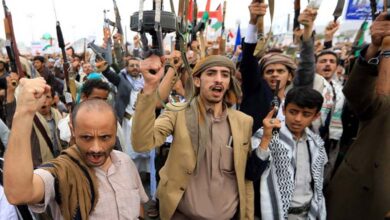The Brotherhood in Bosnia… Desperate attempts for a foothold

In contrast to what is happening in Western Europe, the terrorist Brotherhood’s presence in the East of the continent has been tainted by blurry information.
Despite the scarcity of information and the difference between countries, the terrorist Brotherhood is present in Eastern European countries, even if the density varies from country to country.
The Brotherhood’s presence in these countries recalls the group’s first presence in Western countries several decades ago, when a handful of students established what is now a sprawling network, according to a recent study by the Center for the Documentation of Political Islam (government) in Austria.
In countries like the Czech Republic, Slovakia, Hungary, Slovenia, Croatia, and Romania, it has established a set of elements that range from organizational ties to ideological affiliation with the Brotherhood, embracing the Brotherhood model in Western countries.
But the dynamics are not very different in Eastern European countries, which have a large Muslim population of the total population, according to the Center for the Documentation of Political Islam in Austria.
According to the same report, the Brotherhood has a limited presence in countries such as Albania or Kosovo, which have a large Muslim population, and a number of entities in these countries can be traced and linked to the Brotherhood’s international organization, and the two largest organizations active in Europe; the Federation of Islamic Organizations and the Islamic Union of Youth Student Organizations (FIIMSO).
The exception is Bosnia and Herzegovina, where networks close to the Brotherhood have emerged in the country since the early 1990s, in conjunction with the creation of a number of NGOs that run humanitarian services, but at times have provided support to the militants involved in the Bosnian conflict at the time under the guise of humanitarian action.
Although Brotherhood activity in Bosnia has been intense since the early 1990s, communication between the terrorist group and some Bosnian Muslims began in the 1940s with the establishment of the so-called Muslim Youth organization.
According to the Center for Documentation of Political Islam, most of the Brotherhood members who were active in and around Bosnia during the war left the country after the conflict.
However, the Brotherhood’s global organization found allies in prominent local figures in Bosnia, such as former President Isaac Izetbegovic, the country’s former and current Mufti Mustafa Sirić, and Hossein Kavazovic, respectively, according to the same report.
Moreover, the European Council for Fatwa and Research Relating to the Terrorist Brotherhood held multiple sessions in partnership with Muslim Youth in Sarajevo in 2007 and 2013, and even Mufti Yousef Al-Qaradawi was present at the 2013 sessions.
In addition, another organization is a member of the Union of Islamic Organizations in Europe; The Brotherhood’s umbrella organization on the continent, the Association for Culture, Education and Sport in Bosnia, which says of itself that it is a non-partisan, non-governmental, non-profit organization whose activities are financed by donor contributions, membership fees and economic activities.
However, this association is an umbrella organization for the Muslim Brotherhood in Bosnia, and it includes five organizations all over the country under its banner. It is active in penetrating society through the issue of religious education for young people and adolescents.
A review by the U.S. registered server of the Association for Culture, Education and Sports website revealed that the majority of visitors per day, only about 3,400 people, come from Bosnia and Herzegovina, with the rest coming from abroad, meaning that they have limited impact.
Despite these high-level contacts and the activity of a number of organizations in Bosnia under the umbrella of the Union of Islamic Organizations in Europe and FIIMSO, the Brotherhood presence in Bosnia can be described in the last analysis as relatively small in size and influence, according to the study of the Center for Political Islam in Austria.
Bosnia and Herzegovina consists of a diverse ethnic composition; Muslims make up 50.1% (Bosniaks), Serbs 31%, Croats 15.5%, and Islam has existed in this country since the 15th century.











